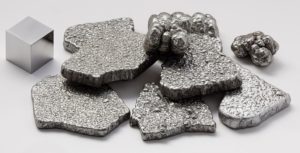In this week’s parasha, Ekev, Moses describes the rich land of Israel and says it is “a good land, a land with brooks of water, fountains and depths, that emerge in valleys and mountains, a land of wheat and barley, vines and figs and pomegranates, a land of oil producing olives and honey…” This first part of the description is well-known, and the source for the Seven Species of Israel. These are the seven plants that are particularly praiseworthy, and are native to the Holy Land: wheat, barley, grapes, figs, pomegranates, olives, and dates (which were used to make the honey that Moses is speaking of). The Zohar explains that all other species of plants have various angels appointed over them, but God alone oversees the growth and flourishing of the Seven Species (see Zohar Chadash on Ruth, 106a).
 What we often overlook is the next part of Moses description: “a land in which you will eat bread without scarcity, you will lack nothing in it, a land whose stones are iron, and out of whose mountains you will hew copper.” Moses promises the Israelites a land full of iron and copper. This statement is actually just as significant as the Seven Species! What is so special about iron and copper that it was so enticing for Israel? Continue reading
What we often overlook is the next part of Moses description: “a land in which you will eat bread without scarcity, you will lack nothing in it, a land whose stones are iron, and out of whose mountains you will hew copper.” Moses promises the Israelites a land full of iron and copper. This statement is actually just as significant as the Seven Species! What is so special about iron and copper that it was so enticing for Israel? Continue reading
